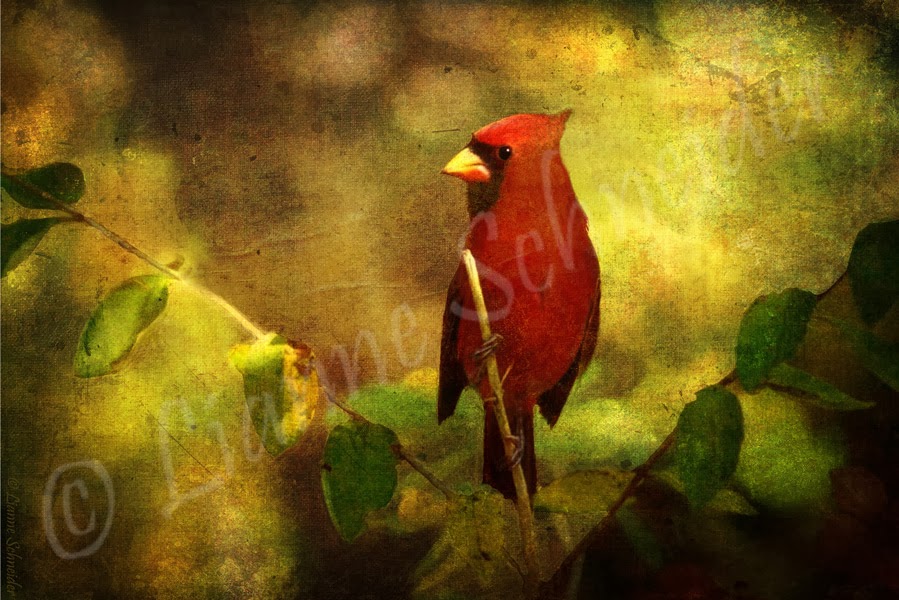Birds are an indicator of the environment.
If the birds are in trouble, we know we'll soon be in trouble.
Roger Tory Peterson
Cheery Red Cardinal
http://lianne-schneider.artistwebsites.com/featured/cheery-red-cardinal-lianne-schneider.html
There aren't many things that can cheer a short, cold, often gray winter day as wonderfully as seeing colorful birds at the feeder outside the window. We're lucky here - we have about 4 pair of cardinals (though one did die the other day I'm sorry to say), blue jays, dozens of goldfinches - which are actually fairly green in winter, ordinary house finches with their red heads, an occasional purple martin, little red wrens, woodpeckers, nuthatches, pretty little titmice, the duller sparrows and chickadees galore. Some of these darling visitors add song to the day as well - cardinals have a particularly sweet and appealing song.
There are a few myths about birds that winter over - and Birds and Blooms has done a nice job of putting those to rest. The first myth and probably a great concern for many of us this particularly cold winter is that birds will freeze to death if temperatures drop far below zero as they have here many times this year. The fact is, according to the website, birds are very well equipped to "survive the coldest temperatures. They store fat during the short days of winter to keep themselves warm
during the long nights. During those freezing nights, they fluff their
feathers to trap heat and slow their metabolism to conserve energy. They
also look for good places to roost, whether it’s a birdhouse, natural
tree cavity, grass thicket, evergreen or shrub." If you'd be interested in dispelling several other myths about winter birds, you can read the rest here: http://www.birdsandblooms.com/birding/birding-basics/winter-birds-myths-facts/
Unfortunately, according to the U.S. Fish and Wildlife Service, "birds across the United States are facing more – and more severe – threats to their survival today than ever before." One of the loveliest is a songbird whose habitat is only in northern Michigan - the Kirkland Warbler. There had been hope to take it off the list but it's still on it right now. Fortunately, here in Western New York, none of our winter songbirds are endangered though in really cold winters like this one, they seem to be less numerous. It's important to keep various kinds of bird feeders - nyjer seed, black oil sunflower, mixed seed, cracked corn and even peanuts - filled daily. Winter birds store food internally to create heat. So if you notice a run on your feeders on any given day - except the temperatures to dive!! Let's look out for our feathered friends who bring us so much enjoyment all year round.


No comments:
Post a Comment